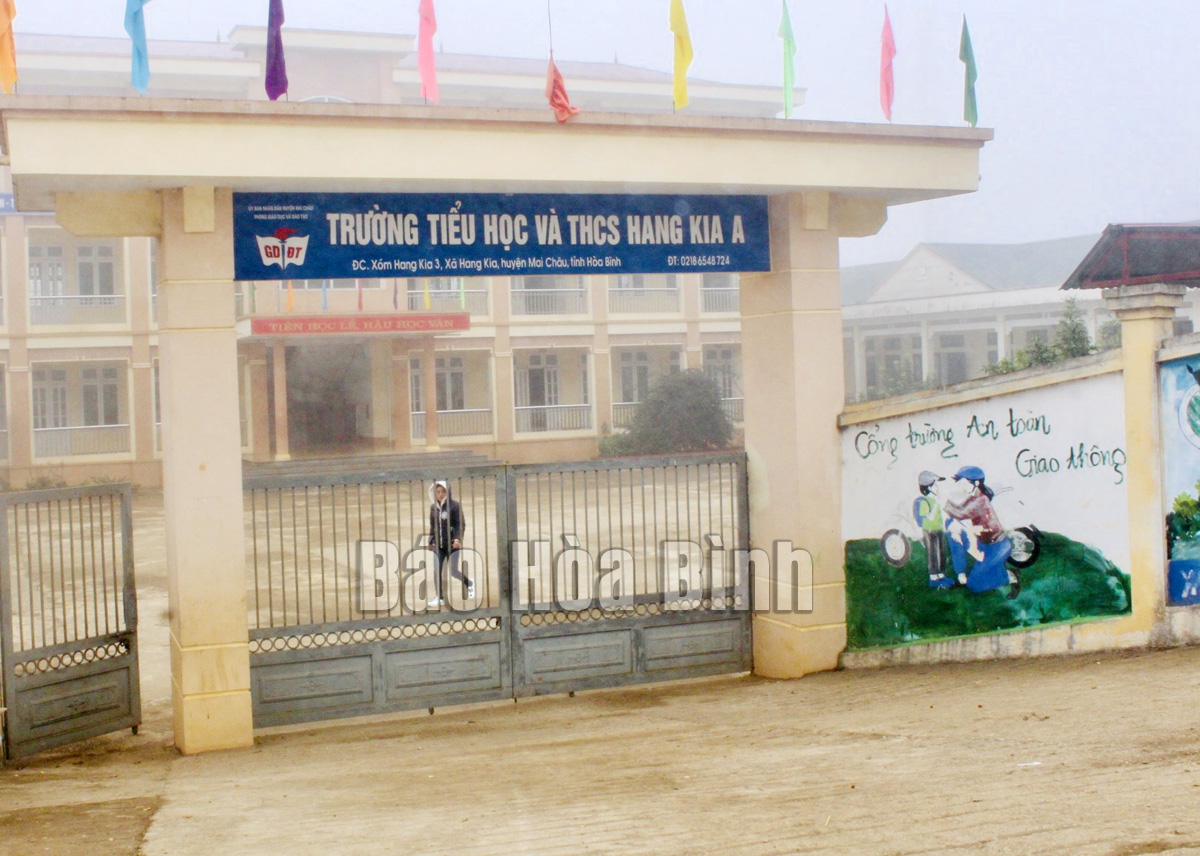
(HBO) – The life in Hoa Binh province's rural areas has changed dramatically with breakthroughs in socio-economic development. Rural residents have got access to the market, science - technology and services to boost production and business activities.
(HBO) - National target programmes in the 2016-2020 period,
including the national target programme on new-style rural area building, have
created motivation for rural development, contributing to completing
socio-economic infrastructure in rural areas towards synchronic direction, and
strengthening their connectivity with urban areas.
A school in Hang Kia commune of Mau Chau district has been developed to meet
teaching and studying requirements of teachers and students.
In 2020, total resources for the implementation of the national target
programme on new-style rural area building was over 3.85 trillion VND (167.23
million USD), including 1.44 trillion VND sourced from the state budget, over
122 billion VND mobilised from businesses and economic organisations, and
298.96 billion VND from the society.
Localities have also given considerable resources for rural infrastructure
development. From resources for new-style rural development and other
resources, 184 rural roads have been built and upgraded.
Besides, localities across the province have constructed and upgraded 59
inner-field irrigation works. So far, 123 out of the province's 131 communes
have completed the criteria in irrigation for a new-style rural area.
At the same time, power networks in rural areas have basically met
socio-economic development requirements of localities, helping to improve the
face of rural areas. So far, 100 percent of rural households have accessed stable
and safe power supplies, while all the 131 communes have reached criteria in
electric supply.
Last year, 62 public works were built with public investment capital.
Currently, 187 out of 319 schools across the province have been equipped with
teaching equipment meeting national standards, while 69 communes have completed
the criteria in terms of school.
Alongside, cultural infrastructure systems have received adequate investment
from public capital and other sources, with 293 works built, helping 76 communes
to complete new-style rural area criteria in the field.
Meanwhile, the development of necessary infrastructure systems has helped
locals promote their economic development and increased their access to social
services to improve their living conditions.
By the end of 2020, per capita income of rural residents in Hoa Binh reached
34.5 million VND per year, while the rate of poor households has reduced 3
percent each year averagely, and even 4-5 percent in poor communes. Currently,
68 communes across the province have finished criteria in income and 66
communes have completed criteria in poverty reduction. Twelve communes of Hoa
Binh have been recognised as advanced new-style rural areas, while 58 out of
131 communes have completed all 19 criteria of new-style rural areas./.
The emulation movement "Hoa Binh joining hands to build new-style rural areas” has been widely spreading, becoming a driving force that motivates the localities to renew rural landscapes and improve the material and spiritual lives of the residents. In this movement, the people play a central role-both as the main implementers and direct beneficiaries of its outcomes.
In response to the global digital revolution, Hoa Binh Newspaper is transforming itself into a modern and multi-platform media hub, blending cutting-edge technology with a restructured newsroom and a new generation of tech-savvy journalists.
Hoa Binh province’s Association of the Elderly recently held a conference to review the project on expanding the inter-generation self-help club model until 2025.
In a move to implement Resolution No. 57-NQ/TW, issued on December 22, 2024 by the Politburo, which targets breakthroughs in science-technology development, innovation, and digital transformation, the Hoa Binh provincial Department of Health has issued a plan to roll out the "Digital Literacy for All” campaign within the local health sector.
An Nghia Commune (Lạc Sơn District) is one of the communes that achieved the tha standard of the national new rural area in 2018. Entering a new development phase, the commune is now trying to meet the criteria for the advanced new rural development. With the strong political will and the public consensus, the commune is gradually overcoming the challenges to reach this goal, aiming for the sustainable development.



